
Status Network Pre-Deposit Vaults: Be Early To The Gasless L2
We are thrilled to announce that the long-awaited pre-deposit vaults for Status Network are opening now! Start earning rewards and reputation on the first fully
Where the Status community shares long form articles, thoughts, and ideas.

We are thrilled to announce that the long-awaited pre-deposit vaults for Status Network are opening now! Start earning rewards and reputation on the first fully
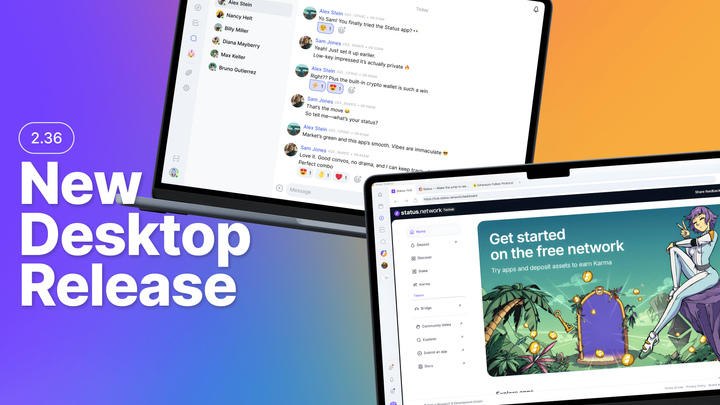
A major step toward the first Privacy Super App, with a built-in private browser, opt-in message backup & sync, cool emoji reactions, and more. Read
Status Network mainnet is getting closer If you hold SNT, you can have your say on how the network launches A new vote is live

Status Network is approaching its most important moments yet. After the Status community approved the mandate to build SNT staking and the Status L2 in
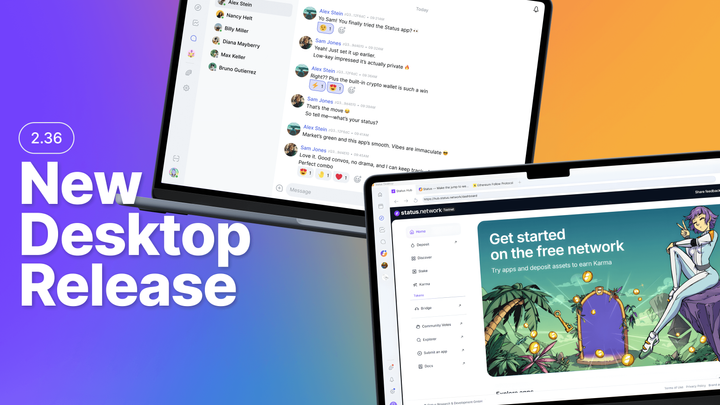
Every time you switch from chat to browser… Every time you move from wallet to dApp… Every time you jump between apps… Your metadata leaks

We are excited to announce that Status Network has partnered with Aragon to deploy its pre-deposit vaults for mainnet, offering exciting benefits to those who get in early.

From October 24 to 26, ETHBishkek 2025, Central Asia’s first Ethereum-focused hackathon, was held at the Technopark in the heart of Bishkek, the capital

The first release of the unified Status mobile app is live on the Google Play Store (Android)! The iOS version on the App Store is
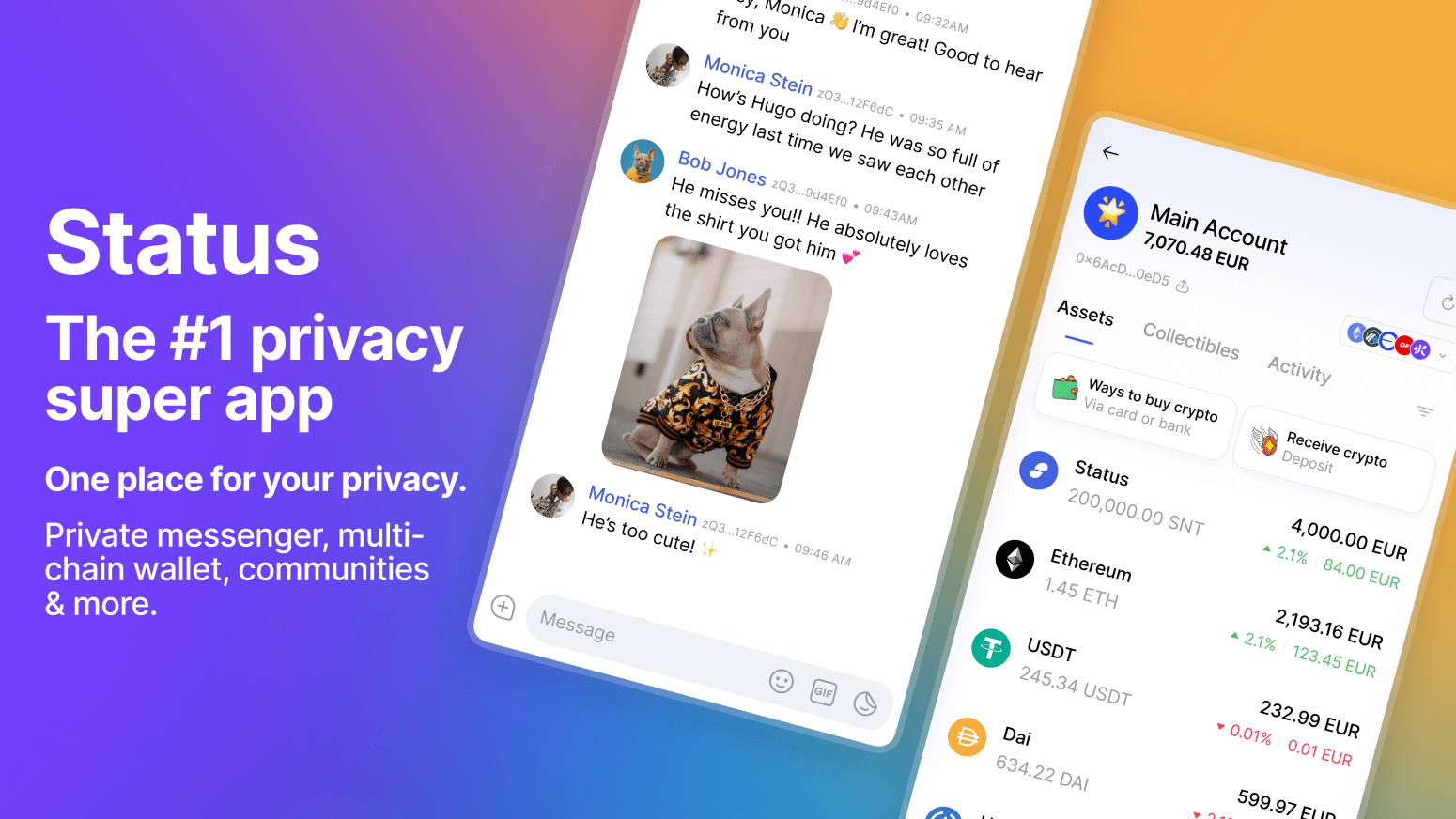
Meet the unified Status Mobile app (referred to as Status Mobile app in this article) — built from a single Status Desktop codebase to deliver a unified experience across mobile and desktop devices.
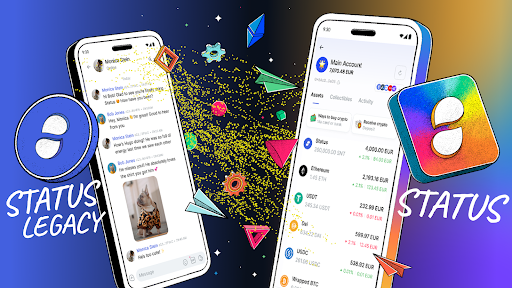
The final feature release for this Clojure-based Mobile App v2.34.4, meet the unified Status mobile app, and What’s next Read more
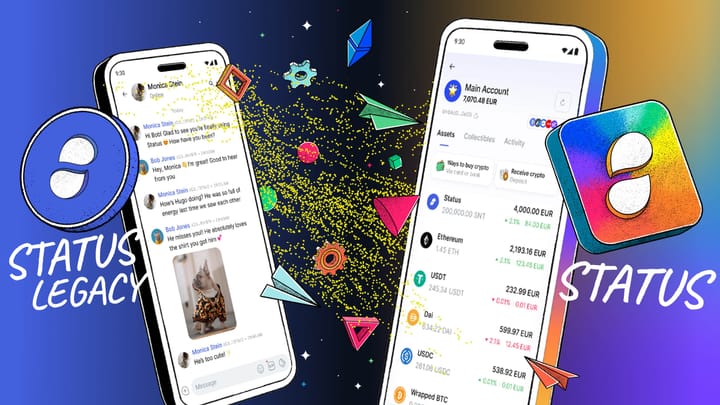
The initial version of the unified Status Mobile App for Android will be released next week, with iOS support to follow shortly.

At this year's Korea Blockchain Week 2025, held in Seoul on September 23-24, Status Network stole the spotlight by presenting a new paradigm for the Ethereum ecosystem.

🚀 Korean is live, and we’re just getting started! Help us bring Status into more languages and make privacy accessible everywhere. Upgrade to v2.35.

We’re launching the beta of our Status Portfolio Wallet browser extension — and we want YOU to join us! Test, build, and shape its future
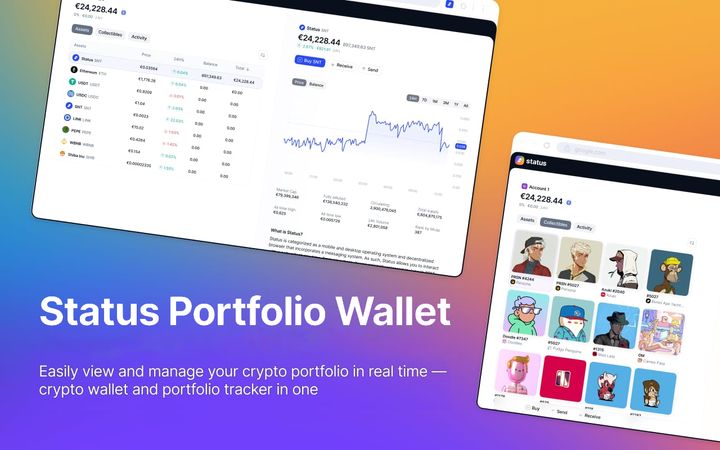
We’re launching the beta of our Status Portfolio Wallet browser extension - and we want YOU to be part of it! Join us in testing, building, and shaping the future of our wallet.